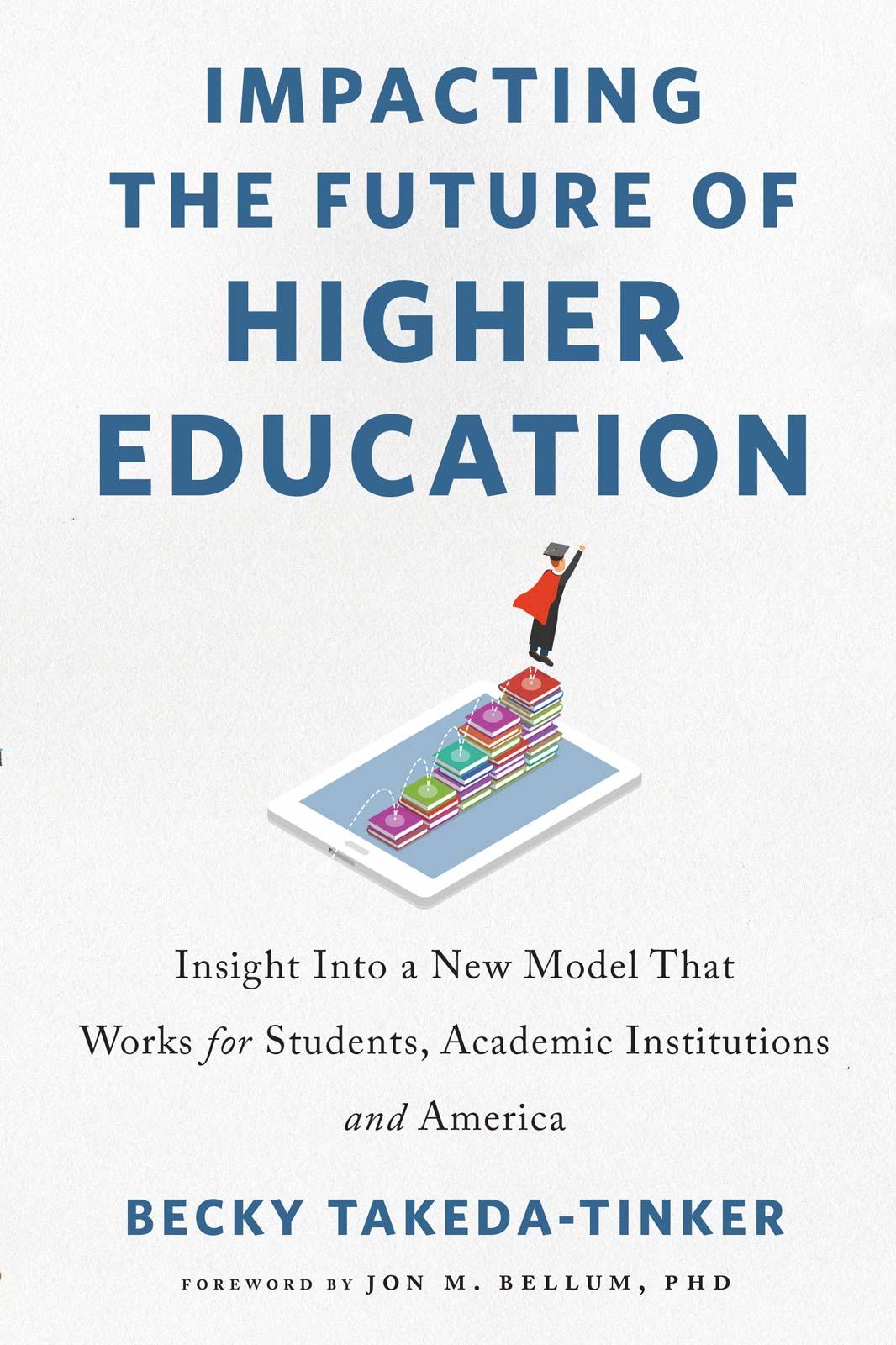

When you think of higher education, what big names come to mind?
Is it Harvard and Princeton ... or Southwest Airlines and Amazon? Becky Takeda-Tinker, the president of Colorado State University-Global, argues that maybe it should be the latter.
The school, affiliated with the Colorado State University System, bills itself as "the nation's first and only 100 percent online, nonprofit, independently accredited state institution." Takeda-Tinker tells Colorado Matters that its approach is very different from traditional colleges and universities.
She writes in her new book, "Impacting The Future Of Higher Education: Insight into a New Model that Works for Students, Academic Institutions and America," that CSU-Global has a singular mission — "To prepare nontraditional learners for workplace success in a global marketplace through education."
Audio from this interview will be available after noon Monday.
Read an excerpt:
Think about how you shop for expertise. If you need heart surgery, you will look for a physician who has performed the same or similar surgery many times. You will likely shy away from a surgeon who has just earned his credentials and has only been in the operating room as an intern. In similar fashion, we want our attorneys, electricians, and accountants to have real-world experience. If experience in the field of medicine or law matters to us when choosing our surgeons or our attorneys, why would we behave differently when selecting higher education instructors? These are the individuals charged with providing our students with the information and skills they need to succeed at work. Only having academic credentials isn’t a bad thing, but having both an academic background and hands-on industry experience provides for richer and more engaged student learning. No Substitute for Experience I saw this in my own life. When I was studying for my MBA, my classmates and I all wanted to get into the marketing class that was taught by a guy who was an advertising executive by day and a university instructor by night. Like all of my instructors, he assigned textbook reading, but during class he shared client stories to explain how theories applied in real-life scenarios. For example, he could tell us what to do if, despite all our research and planning, a client wanted to do the opposite of what we recommended. The complexities of managing that scenario, to arrive at a decision that an agency could support and that the client was willing to pay for, was fascinating and certainly not in the textbook. I looked forward to every single class, and I worked hard to make my homework assignments worthy of his time to review. I was thoroughly and totally engaged. Conversely, my graduate school instructor in finance taught us about currency exchange, but he had never been a currency trader or held a Wall Street position; he had chosen the academic route to become a tenured professor. When a student asked him a question about how markets might shift in response to a recent world event, he could tell us what he expected might happen based on the theory and past history. Yet, he had no personal examples to draw on to further engage us. He was clearly very smart and knew his history and theory, and he could explain currency market dynamics, but the lectures were just academic, making a difficult subject even more challenging. As a baseline, university faculty members typically need at least a master’s degree, if not a doctorate. Most tenured faculty members, however, have spent a majority or all of their entire careers in academia, writing journal articles and conducting research in their field. If a research university is graduating students who are all expected to become researchers, it makes sense that these students would be taught by people who have been researchers. Or if students are enrolled in education courses, having instructors who have been in academia most of their professional lives adds value. At CSU-Global, the faculty members who teach in its master’s of science in teaching and learning classes ft this bill. However, because the institution is preparing people for the workforce outside of research and education, it believes it needs faculty who have actually worked in their areas of expertise in organizations beyond academia. |

 Today’s college graduates are considered by many to be ill-prepared for workplace success, because when they enter their frst jobs out of college, they do not have workplace-ready skills.
Today’s college graduates are considered by many to be ill-prepared for workplace success, because when they enter their frst jobs out of college, they do not have workplace-ready skills.







